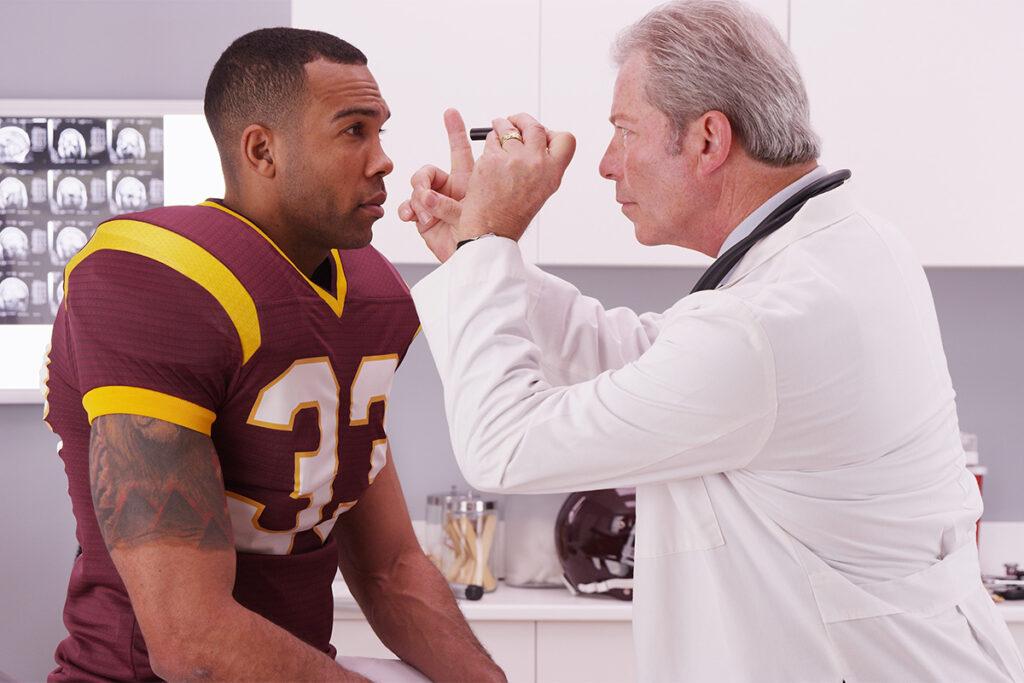Scottdale Rehabilitation & Wellness Center Can Treat Your Concussions
Scottdale Rehabilitation & Wellness Center in Scottdale, PA is answering your questions about football season and concussions. It’s that time of year again as high school, college, and NFL football teams from all over start another season. However, as we watch those touchdowns and tackles this year, concussions will happen. Our Scottdale facility offers personalized treatments, therapies, and rehabilitative exercises for those who have concussions. In this blog, we will take a look at concussions and how to manage them this year.
What is a Concussion?
A concussion is a traumatic brain injury caused by a sudden impact or jolt to the head or body. Football carries a heightened risk of concussions due to the frequent collisions and tackles that occur on the field. Concussions can result from player-to-player contact, helmet-to-helmet hits, or even falls to the ground. Other contributing factors with concussions include:
- Player Age: Younger players, with developing brains, are more susceptible to the long-term consequences of concussions.
- Repetitive Head Trauma: Players in positions that involve frequent head impacts, such as linemen and linebackers, are at increased risk.
- Improper Tackling Techniques: Poor tackling form can lead to more significant head injuries.
- Helmet Quality: Wearing a well-fitted, high-quality helmet can help reduce the risk of concussions.
There Are Consequences for Not Treating Concussions the Right Way
Failing to address concussions promptly and adequately can lead to serious consequences for football players, including:
- Cognitive Impairments: Memory problems, difficulty concentrating, and mood changes can persist long after a concussion.
- Increased Risk of Subsequent Concussions: Suffering a concussion makes players more vulnerable to additional head injuries.
- Chronic Traumatic Encephalopathy (CTE): Repeated concussions have a link to CTE, a degenerative brain disease associated with memory loss, mood swings, and cognitive decline.
- Physical Symptoms: Headaches, dizziness, and sensitivity to light and noise are common post-concussion symptoms.
How to Protect Player’s Health Before, During, and After Trauma
Preseason Baseline Testing: Conduct baseline cognitive and neurologic assessments for all players before the season starts. This provides a reference point for evaluating any post-concussion changes.
Proper Tackling Techniques: Coaches should emphasize safe tackling techniques that prioritize player safety.
Mandatory Concussion Education: Ensure that all players, coaches, and staff understand the signs and symptoms of concussions and the importance of reporting them.
Helmet Safety: Regularly inspect and maintain helmets to ensure they are in good condition. Replace helmets that show signs of wear and tear.
Sideline Evaluation: Establish a clear protocol for assessing potential concussions during games. You should remove any player suspected of having a concussion immediately.
Medical Evaluation: Players suspected of having a concussion should undergo a thorough medical evaluation by a healthcare professional experienced in concussion management.
Return-to-Play Protocol: Gradually return players to physical activity only when they are symptom-free and cleared by a healthcare professional.
For more on this important topic, call Scottdale Rehabilitation & Wellness Center at (724) 887-6615. Follow us on Facebook for updates. We are ready to discuss risks and treatments associated with football season and concussions.

